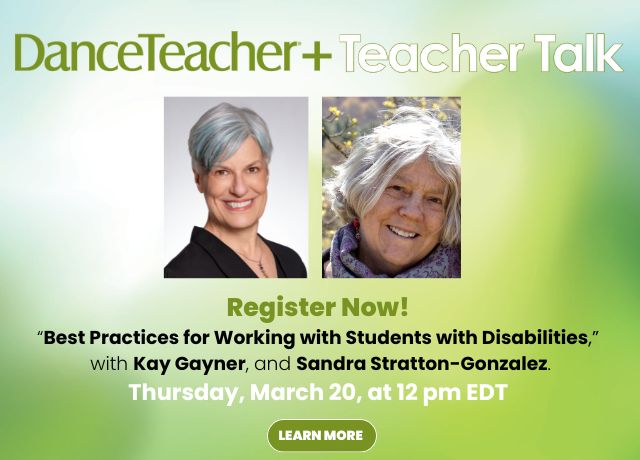As principal of The Nutmeg Conservatory for the Arts, one of Ronald Alexander’s greatest blessings is that nearly all of his talented students want to dance professionally. That’s also, however, one of his greatest challenges.
“It’s an absolute delight to work with students who are committed to dance,” says Alexander, who has overseen both the academic and the ballet training programs at Nutmeg since joining its faculty in 2008. “But we have an emphasis on developing a well-rounded individual, and that includes academics. These students all have stars in their eyes; they forget that they may change their minds someday.” The school’s gifted young dancers, he says, often fail to recognize that attending a serious college dance program can be just as stimulating as dancing in a professional company—and that a college degree can end up coming in handy later on. He laughingly adds that he spent a recent weekend signing reluctant students up for the PSAT. “When academic opportunities beckon,” Alexander says, “we want them to be prepared.”
Alexander knows firsthand the value of an academic education. Before beginning his dance career, which included stints with the National Ballet of Canada and the Frankfurt and Hamburg Ballets in Germany, he earned a BA in dance from Empire State College, and he returned to school later, earning an MFA in dance from New York University’s Tisch School of the Arts. “School was always part of my plan,” he says. Over the past 30 years, his diverse education has allowed him to teach at institutions including Marymount Manhattan College and Adelphi University, and to hold administrative positions with the New York City Department of Education and at Dance Theatre of Harlem.
He brings all of that experience to Nutmeg, where he’s helped refine the already prestigious pre-professional and summer programs. “I brought a bit of New York City energy to the devoted, homegrown faculty here,” Alexander says. That “city energy” has attracted many high-caliber students to Nutmeg in the past few years—young men in particular, Alexander says—which in turn has made “democratic” performance casting possible. “All the students here are at a level where they can dance leading roles, so I’ve put a tremendous emphasis on letting everyone have that experience,” he says. “We have many Nutcracker performances, and we don’t use guest artists. Students get to be Cavaliers and Sugar Plums—and then they’re snowflakes and mice in the next show.” The same rules apply to midyear repertory and graduation concerts.
One of the most fulfilling parts of Alexander’s job is helping his students achieve their dance dreams—whether, in the end, those dreams involve a company or a college. “At a conservatory like Nutmeg, it is part of our duty to find our students jobs as ballet dancers or spots at dance universities or college dance programs,” Alexander says. “Because my career has bridged that gap between professional dance and academia, the connections I’ve made help us create success stories.” He cites a recent example: A student expressed interest in Adelphi University, and since Alexander knows the school’s dance director, Frank Augustyn, from their days at National Ballet of Canada, he was able to arrange a private audition for her. “This is what conservatories are set up for,” Alexander says. “It’s what Nutmeg does best.”
Also in “Five Teachers, Five Venues”:





